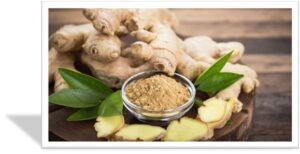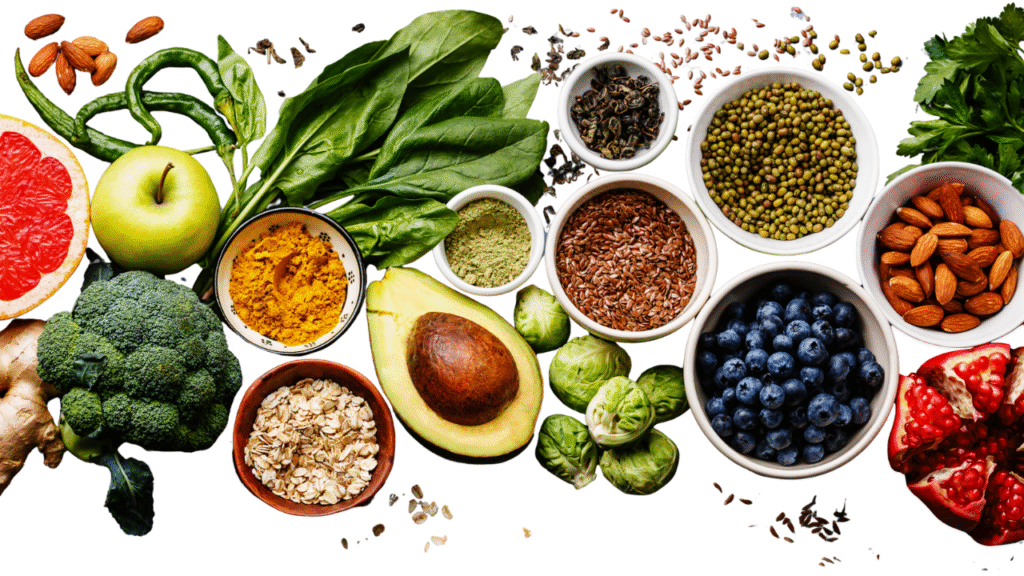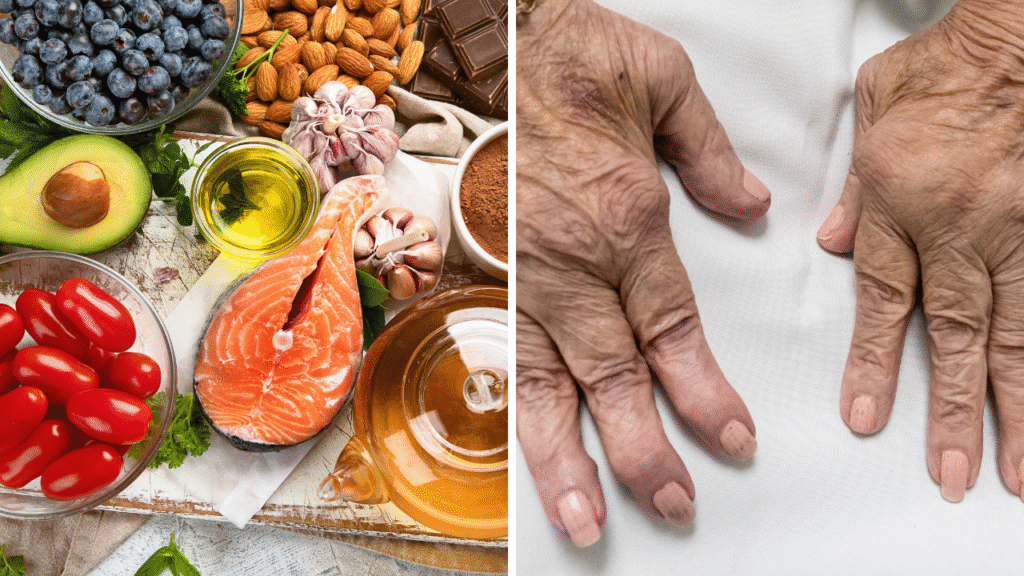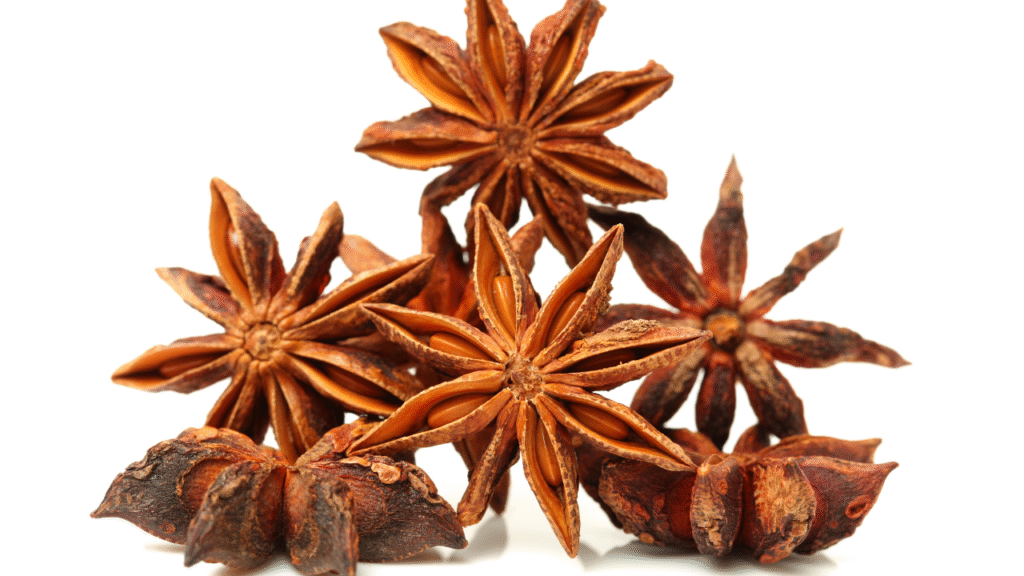

Ginger is a medical plant with yellowish-green flowers and leafy stems.
We extract the ginger spice from the rhizome or the root. It is used worldwide as a condiment and flavoring for food, teas, and herbal medicines.
The leafy plant can reach a height of three feet and bears clusters of greenish-purple flowers. The root or rhizome of it is used as a spice or as a hearing aid. Ginger is a flowering plant native to Southeast Asia. It is one of the healthiest (and most delicious) spices available.
Cardamom and turmeric are members of the same plant family as ginger. The presence of ketones, particularly gingerols, which appear to be the principal component of ginger examined in much health-related scientific research, contributes to its aromatic scent. The rhizome, or horizontal stem from which the roots grow, is ginger’s most commonly consumed part. It has a lot of antioxidants.
How To Harvest Ginger
The rhizomes are ready for harvesting once the plant has bloomed, which takes about 10-12 months from sprouting. The leaves get yellowed and dried, and the stems are collapsing at this point. It is harvested by removing the entire plant from the soil, removing the leaves, and cleaning the roots.
The root of ginger harvested at 8-9 months has a tough skin that must be removed before eating, and it is used dry or pulverized into powdered ginger. This is the most prevalent kind in our spice cabinets, and it is used in biscuits, cakes, and curry powders. Ginger candied or crystallized is boiled in sugar syrup and then dusted with granulated sugar.
The rhizomes of ginger harvested at five months are tender with a mild flavor and fragile skin because it is not yet mature. Therefore, they are best used in fresh or preserved forms.

How To Preserve Ginger
- To keep ginger at its freshest, store it with the skin on. The uncut and unpeeled root can then be left on the counter for a day. Then, as with most sturdy produce, it will look lovely in a lovely, airy basket or on a plate.
- To keep fresh ginger on hand for as long as possible:
- First, place the root in the freezer to keep it fresh. Then, you can set the entire thing in a freezer-safe bag or container or cut it into 1-inch pieces first.
- Always store it inside a paper bag or a paper towel in the refrigerator or freezer.
- Pack a chunk of it by adequately wrapping it until there is nowhere to be exposed to air and moisture.
- This way, you’ll be able to keep it longer.

Forms
- Fresh,
- Dried,
- Powdered or ground
- Oil
- Capsules
It can be eaten fresh, dried, pickled, preserved, crystallized, candied, and powdered or ground. With a powerful and spicy scent, the flavor is mildly peppery and slightly sweet.
How To Store Ginger
Store freshly peeled ginger in a jar with an acidic liquid, including lemon juice or vinegar. While it may be a robust storage method, there are chances these liquids may alter the taste and flavor of ginger.
One of the best ways of storing ginger is to peel and mince it finely, then place it on a tray and allow it to freeze. Next, store the frozen one in an air-tight container. This frozen one can be enjoyed for up to a few months without losing flavor.

Uses of Ginger
- It’s one of the world’s healthiest (and most delicious) spices.
- When used regularly, ginger is a versatile spice that can help with many aspects of heart health, including circulation, cholesterol levels, and blood pressure.
- It is commonly used to treat nausea and vomiting. It’s also used to treat menstrual cramps, osteoarthritis, diabetes, migraine headaches, and various other ailments. Ginger is also a natural calcium channel blocker, which aids in blood vessel relaxation. You can incorporate ginger into your meals and beverages regularly.
- Fresh, dried, powdered, or as an oil or juice, ginger can be used in various ways. For example, it’s a common ingredient in recipes.
- We use it as a flavoring agent in foods and beverages.
- Ginger is used in the manufacturing of soaps and cosmetics for fragrance.
- One of the chemicals in ginger is also used in laxatives, anti-gas, and antacid medications.
Ginger’s antioxidants and other nutrients may help prevent or treat arthritis, inflammation, and infections. Researchers have also looked into its ability to lower the risk of diabetes, cancer, and other health issues.
The ginger plant contains a variety of vitamins and minerals.
One tablespoon of fresh ginger contains the following nutrients.
- 4.8 Kilocalories
- The Carbohydrate content is 1.07 grams (g).
- dietary fiber (12 g)
- Protein content: 11 g
- 05 g of fat
- 1 gram sugar
Fresh ginger contains trace amounts of the following vitamins and minerals:
- B3 and B6 vitamins
- Iron
- Potassium
- C vitamin
- Magnesium
- Phosphorus\sZinc
- Folate
- Riboflavin
- Niacin
10 Health Benefits Of Ginger
Ginger is available in various efficient and influential forms, including fresh, frozen, dried, powdered, and even oil. In addition, it is widely used as a seasoning and in folk medicine due to its numerous health benefits. This is especially true in Asian cuisines and culture, where it has been used as a tonic for treating common ailments for thousands of years.
1. Ginger Reduces Muscle Pain
Ginger aids in workout recovery; add some cinnamon and it to your pre-cycling class smoothie, and it’s a total game-changer. Both warming ingredients have been shown to reduce muscle soreness after exercise.

The researchers aren’t sure how much and how long you should increase the ginger in your diet, but it can’t hurt to grate some into your soup or pasta sauce to help prevent muscle pain.
Possibly Effective For Reducing Muscle Pain
Ginger has been shown to have hypoalgesic properties and to alleviate muscle pain. A 74-person study found that taking raw or heat-treated ginger daily could reduce muscle pain after exercise. The root is well-known for its anti-pain and anti-inflammatory properties. In addition, it can relieve the inflammation caused by strenuous workouts.
2. Ginger Aids Digestion
Dried ginger has been used to treat upset stomachs and nausea for thousands of years. Gingerol is the most pharmacologically active compound in ginger, and it’s thought to affect the gastrointestinal tract positively; it may help with ulcers, constipation, and indigestion.

The tea is said to help with nausea and digestion; you can sweeten the bitterness of the ginger with honey or stevia if you like.
Possibly Effective For Nutrient Digestion
According to some studies, a 56-day feeding trial was conducted to study the effect of supplementary dietary ginger on nutrient digestibility and growth performance. As a result, it was discovered that a 40-g dried ginger meal per kilogram diet is recommended for obvious nutrient digestibility and significant growth improvement.
3. It Helps With Menstrual Pain
A cup of ginger tea and 30 minutes of aerobic exercise may be the miracle cure you’ve sought to relieve cramps. A 750-2,000 microgram dose of powder appears to be the magic amount that works best during the first three days of your period; try adding a pinch to the pancake or sweet bread batter to sneak some in.

Possibly Effective For Reducing Menstrual Pain
It naturally relieves menstrual pain in women suffering from dysmenorrhea, which is simply a fancy term for menstrual pain.
A study with 150 participants from 2006 to 2007 found that taking 250 mg capsules of ginger rhizome powder four times per day for three days from the start of one’s menstrual cycle effectively relieved pain during the menstrual cycle. In addition, it has been proven to be just as effective as ibuprofen, a prevalent drug used to treat pain.
4. It Helps In Migraine Relief
A study found that taking 500-600 mg of ginger powder every 4 hours for 3-4 days provided relief from migraine attacks.
It contains naturally occurring oil and is responsible for its flavor and health benefits. This oil’s chemical compounds, including ginger and shogaols, have anti-inflammatory and pain-relieving properties. These compounds are also effective in treating nausea and vomiting, which are two symptoms of migraine attacks.

The extracts may also raise serotonin levels, a chemical messenger involved in migraine attacks. Increased serotonin levels in the brain can help to prevent migraines by reducing inflammation and constriction of blood vessels. So far, only the capsules and a gel have been studied and shown to be beneficial to migraine sufferers.
Possibly Effective For Reducing Migraine Pain
Migraine treatment varies from person to person and even depending on the type of migraine. Several studies have also shown that ginger derivatives, such as ginger powder, can help treat migraines. The severity of the painful, long-lasting headache decreases two hours after using the root powder. In addition, it has been shown to have a similar effect as sumatriptan, a medication commonly used to treat migraines.
5. Ginger Can Help Prevent Cancer
Tumour development and progressions are multi-step processes, including genetic and metabolic changes.
While no single ingredient can prevent severe disease, ginger does pack a powerful punch. It is high in antioxidants, which help to protect the body from cancer.

Numerous lab studies also show that it has anti-inflammatory and antioxidant properties that may play a role in preventing diseases like cancer. Gingerol, which is found in raw ginger, is thought to have anti-cancer properties.
Possibly Effective In Preventing Cancer
According to some studies, ginger has been studied as an alternative remedy for several forms of cancer. For example, one such study published in the journal PLOS ONE found that 6-Shogaol (one of the active components in ginger) might be more effective than one specific chemotherapy drug at combating breast cancer stem cells. In addition, it may be effective against other gastrointestinal cancers, such as pancreatic and liver cancer.
6. Helps In Lower Cholesterol
If you already have high cholesterol, a plant rhizome commonly used as a cooking spice may aid in its reduction. Furthermore, a daily dose of ginger may reduce “bad” or LDL cholesterol levels. For example, a recent study found that taking 5 grams of it per day for three months reduced LDL cholesterol by an average of 30 points. This is because ginger activates an enzyme that increases your body’s use of cholesterol and reduces it.

Possibly Effective For Reducing High Cholesterol
It supplements have been shown to help maintain normal cholesterol levels. The extract possesses antioxidative characteristics, and it has been suggested that it acts as a hypolipidemic agent in cholesterol-fed rabbits. The researchers discovered that feeding ginger to rabbits significantly increased the function of hepatic cholesterol, the rate-limiting enzyme in bile acids, while stimulating cholesterol conversion to bile acids and resulting in cholesterol elimination from the body. To help maintain healthy cholesterol levels, a change in diet and exercise routine will be recommended.
7. Ginger helps to lower fasting blood sugar levels.
Diabetes is a metabolic illness that has become a serious global health issue. It’s caused by a problem with glucose metabolism, which is linked to low blood insulin levels or insulin sensitivity in the target organs.
Ginger’s health benefits include lowering blood sugar levels. Diabetes is among the most severe chronic diseases in the world. Diabetes is one of the world’s most serious chronic diseases. Several studies have discovered ginger’s anti-diabetic health benefits, revealing its potential in diabetic treatment.
Fasting blood sugar levels, hemoglobin A1c, and other risk factors for diabetes and heart disease improved after taking a ginger powder supplement orally. As a result, it may play an essential role in treating some cardiovascular diseases and diabetic complications. In addition, a significant health benefit of ginger is that it may be one of the keys to having a happy, healthy heart.

Possibly Effective For Fasting Sugar Levels
Including ginger in your diet may improve your blood sugar levels and reduce the risk of developing type 2 diabetes. Diabetes is a disease in which the pancreas cannot make insulin, a hormone that regulates blood sugar levels, or the body fails to use this hormone effectively. It helps control diabetes by stimulating the production of insulin.
In one study on people with type 2 diabetes, researchers found that those who took 1600 milligrams (mg) of ginger powder for 12 weeks had improved insulin sensitivity, lower triglycerides, and lower total cholesterol.
8. It Soothes Dry Mouth
Dry mouth or xerostomia is a typical symptom of Type II diabetes. A dry mouth usually occurs when your salivary glands do not produce enough saliva. It is essential to note that dry mouth is more than just a discomforting condition. A lack of saliva in your mouth may increase your risk of specific mouth ailments such as mouth sores and yeast infections, tooth decay, and bad breath.

It may aid in the relief of dry mouth and the prevention of associated mouth ailments. A clinical trial on Type II diabetes patients revealed that ginger herbal spray increases saliva production and could be used as a new, inexpensive, and widely available treatment for patients with dry mouth.
Possibly Effective For Soothing Dry Mouth
Ginger is a popular herbal sialagogue. This means it stimulates saliva production, which helps with dry mouth. Ginger sprays, tea, and other products may help stimulate the salivary glands and increase saliva production. Because of the effectiveness of the herbal spray in rapidly expanding the patient’s saliva and satisfaction and the acceptability of this type of medicine to treat dry mouths, the ginger herbal spray could act as a new, inexpensive, and readily available treatment for diabetic patients with dry mouth. Cut off a little piece of a fresh one and chew it several times daily. You might also try drinking a few glasses of ginger tea instead.
9. Ginger is a natural disinfectant as well as an antioxidant.
Gingerol is solely responsible for this particular health benefit of ginger. Its root has potent antibacterial and antifungal qualities that aid in disinfection and the battle against unwanted germs and fungi. It can even stop bacteria from growing, making it a more effective disinfectant.

Possibly Effective To Prevent Infections
Ginger may aid in the fight against harmful bacteria and viruses, potentially lowering your risk of infection. In addition, consuming it can help induce your body to sweat, which is one of the reasons it can be beneficial as a natural disinfectant. Sweating is an excellent method of detoxification because it causes toxins to be released directly into the bloodstream. It also produces dermcidin, a protein that aids the immune system’s defense.
10. Ginger Reduces Symptoms Of Osteoarthritis Of The Knee
Musculoskeletal pain and disability occur due to osteoarthritis. Anti-inflammatory medicine treatment for osteoarthritis provides relief, but it also has adverse effects and can lead to a stomach ulcer.
It is anti-inflammatory, meaning it helps to reduce swelling. This could be particularly beneficial in treating rheumatoid arthritis and osteoarthritis symptoms. In addition, you may find relief from pain and swelling by taking ginger or applying a ginger compress or patch to your skin.

Possibly Effective For Reducing Inflammation
The root can also help with pain relief, a substantial health benefit. The deterioration of joint cartilage and the underlying bone causes osteoarthritis, a type of joint disease. Because the flexible tissue that allows you to bend your knees breaks and weakens, producing discomfort, swelling, and trouble moving about, it’s also known as “wear and tear” arthritis.
According to research, the highly purified and standardized ginger extract significantly influences the reduction of osteoarthritis symptoms, particularly in the knee. Patients reported less knee pain when standing, sitting, and walking.
Ginger honey Juice
Ingredients
- 4 cups of water
- 4oz of ginger
- One lemon
- Honey or another natural sweetener {optional}
Instructions
- Take 4oz of ginger, wash, and peel off the skin.
- Chop the fresh ginger into tiny pieces.
- Please put it in the blender, add a little water, and blend it into a puree.
- Bring the 4 cups of water to a boil in a small saucepan.
- Cut the lemon into two pieces and squeeze the juice into a cup.
- Add the boiled water to the pureed ginger and stir it.
- Strain the ginger juice into a jug or a bowl.’
- Add the lemon juice and honey into the jug of the ginger juice.’
- Enjoy your ginger honey juice all day.
Side Effects
When used correctly, it is most likely safe. However, ginger may cause the following minor side effects:
- Increased Bleeding Tendency
- Abdominal Discomfort
- Cardiac Arrhythmias (If Overdosed)
- Central Nervous System Depression (If Overdosed)
- Dermatitis (With Topical Use)
- Diarrhea
- Heartburn
- Mouth Or Throat Irritation
Safety for Precautions
Medications that slow blood clotting (anticoagulant/antiplatelet medications) are strictly prohibited while using this plant.
Pregnancy.
Hyperthyroid.
Phenprocoumon
Although ginger is generally considered safe, the lack of a complete understanding of its mechanisms of action suggests caution in its therapeutic use.
Where To Purchase Ginger
Fresh or dried ginger root, oil, extract, and capsules are just a few ways to consume ginger. Ginger supplements are also available at the grocery store and on the internet, or
Conclusion
Ginger is high in minerals and bioactive chemicals, which offer excellent health and mental advantages. Ginger root, linked to cardamom and turmeric, is extensively used for its remarkable capacity to treat various ailments. It acts as a fantastic antioxidant and disinfectant and also has excellent natural anti-inflammatory properties. It helps with various forms of pain, from dysmenorrhea to migraines to muscle cramps from exercise, and soothes the symptoms of nausea, improving digestion. Ginger is a good source of antioxidants, but it does not provide many vitamins, minerals, or calories.
Disclaimer: The information given here is exclusively for educational purposes only. It should not be construed as a diagnosis, treatment, preventive, or cure for any disease, disorder, or abnormal physical state, nor should it be used in place of medical care from your doctor. Consult an appropriate healthcare professional on any issue concerning your health or well-being before engaging in any health-related activity.




